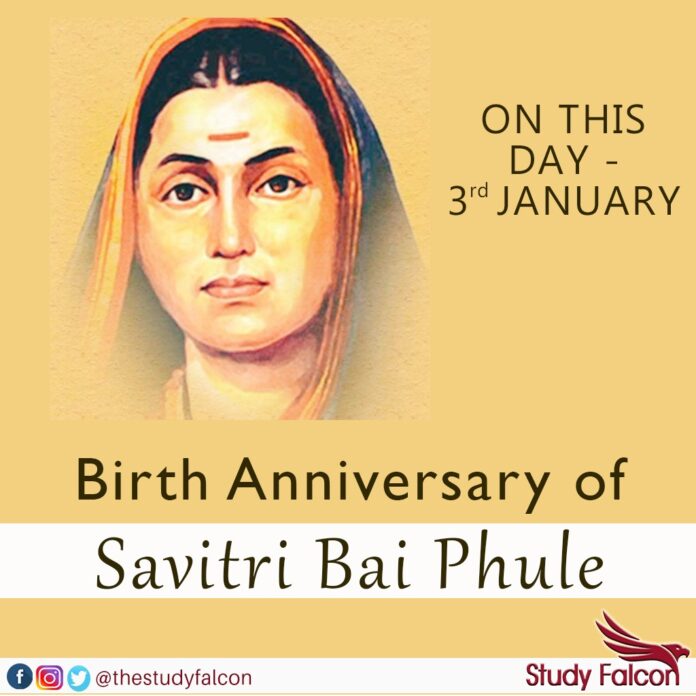A pioneer of advocating women’s right to education in India, Savitribai Phule’s 190th birthday is being celebrated on Friday, January 3, 2020. A revolutionary woman and a social reformer from 19th century, Savitribai Phule has a number of accomplishments to her name. She is known for her efforts towards educating women in India. She, along with her husband Jyotirao Phule, opened India’s first school for women in Maharashtra’s Pune in 1848.
Early Life
Born on 3 January 1831 in Naigaon in Satara district of Maharashtra, Savitribai had a fascination for education since childhood. There was no emphasis on women’s education in those days. The country was independent.
Women had no freedom to study. In such a situation, Savitri’s mind started to draw towards books. Despite strong resistance from the family, their desire to read was not reduced.
Savitri’s study gained momentum with the encouragement and support of Jyotiba Phule. After completing studies, she participated in teacher training and thus got the first female teacher in the country.
First Girls’ School
After getting educated by Savitribai Phule, she did remarkable work for the promotion of women’s education.
The first girls’ school in the country was started in 1848 in Pune by Savitribai, so that girls could get basic education from childhood. He started a total of eighteen such schools which supported girl education all over the country. In the nineteenth century, Savitribai pioneered education.
They had different challenges in this route. At a time when it was difficult for women to even cross the house, Savitribai would go to teach women. She would request the common man to send the girls of her home to school.
In order to obstruct this task, many people made various attempts including throwing dirt on them, intimidating and threatening, but Savitribai’s courage did not diminish.
Child Marriage
Savitribai was herself a victim of child marriage, she was married to Jyotirao at the age of nine, Jyotirao was 13-years-old at the time. Jyotirao was educated and he extended his knowledge to his wife. He trained Savitribai when she said that she wanted to be a teacher.
Awareness
Savitribai continued to work for the upliftment of the weaker sections of the society and empowerment of women.
On 28 January 1853, he established the country’s child murderer’s house. This was Savitribai’s effective initiative to stop female infanticide. In this work of social awakening, she got adequate support of her husband Jyotibafule.
The Phule couple founded the Satyashodhak Samaj on 24 September 1873. Their aim was to get widows married in society, eradicate untouchability, and educate women. He advocated widow remarriage, breaking social conventions and got the country’s first widow remarried on 25 December 1873.
Savitri festival to be celebrated in Maharashtra:
With a view to familiarize the public with the works of Savitribai, January 3 is now celebrated as a Savitri festival in Maharashtra every year. The Ministry of Women and Child Development of the state has issued a notification in this regard.
Various events are organized in all government offices of Maharashtra on the birth anniversary of Savitribai.
It is worth mentioning that in the year 2014, the name of Pune University was changed by the government after Savitribai Phule, the pioneer of the socio-educational revolution.
Literary Work
Savitribai was fond of poetry as well, she used the art form to further her causes of women’s education and eradication of untouchability.
Savitri Bai Phule is revered as the Adi poetess of Marathi language. Her poems were written in Marathi, which were also translated into other languages. She was a strong advocate of universal values such as humanism, freedom, equality, brotherhood, rationalism and the importance of education among others.
Beacon of Light
She was the beacon of light for the women and girls of her time, she started a care programme for the widows of the society. India was deep into social evils against women and lower caste communities.
Savitribai fought against all of them, she opposed the practise of Sati and spoke out against caste-based discriminations. She also spoke out against child marriage and asked parents to send their girls to school instead.










